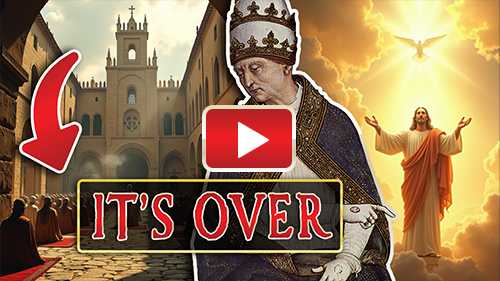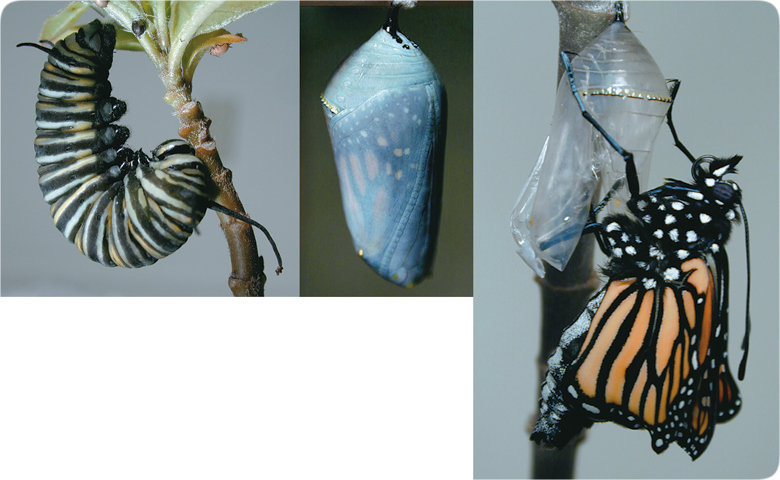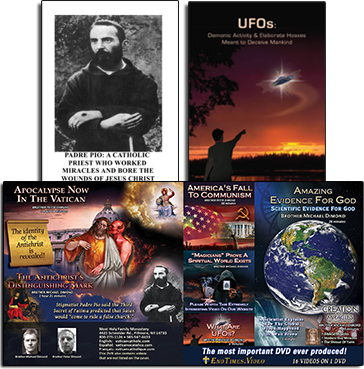January 13, 2006
Hutton Gibson, October, 2004 Newsletter:
Objection from a reader: “…you quote Joseph Pohle, S.T.D.: ‘In like manner Mass may be celebrated privately for the souls of deceased Jews and heathens, who have led an upright life, since the sacrifice is intended to benefit all who are in purgatory.’ [the reader says:] This is pure modernism, and implies that a Jew or heathen who has led an upright life but died outside the Body of Christ on earth could be in Purgatory.’ Hutton Gibson’s response: … ‘I can appreciate that Leonard Feeney might have difficulty in reconciling Joseph Pohle’s implication with his own views. Naturally, if no Jew or heathen can be saved, then neither can be in Purgatory. But Pohle had never encountered Feeney’s subsequent innovation, and therefore took no cognizance of it.’”
Comment: A few years back Hutton Gibson, the “traditionalist” father of the famous Mel Gibson, wrote us and expressed his disappointment that we hadn’t quoted him in Issue #1 of our magazine. He also stated that entire writings of his had been dedicated to our “heresy.” Hutton has denounced us several times in his newsletters. As we inform the many people who ask us about Hutton Gibson, the unfortunate fact is that Hutton Gibson does not possess the Catholic Faith (even though he claims to be Catholic), because he obstinately rejects the dogma that all who die as non-Catholics are lost. It is a fact that Hutton Gibson believes that non-Catholics can be saved without the Catholic Faith. He has indicated this many times in his writings. He consistently attacks with a devilish tenacity the staunch priest Fr. Leonard Feeney, because Fr. Feeney believed and defended this dogma which Hutton hates so much.
Pope Eugene IV, Council of Florence, “Cantate Domino,” 1441, ex cathedra: “The Holy Roman Church firmly believes, professes and preaches that all those who are outside the Catholic Church, not only pagans but also Jews or heretics and schismatics, cannot share in eternal life and will go into the everlasting fire which was prepared for the devil and his angels, unless they are joined to the Church before the end of their lives; that the unity of this ecclesiastical body is of such importance that only those who abide in it do the Church’s sacraments contribute to salvation and do fasts, almsgiving and other works of piety and practices of the Christian militia productive of eternal rewards; and that nobody can be saved, no matter how much he has given away in alms and even if he has shed blood in the name of Christ, unless he has persevered in the bosom and unity of the Catholic Church.”
In his October newsletter, we see that Hutton Gibson again reveals his heretical depravity. He is asked about Jews and heathens getting into Purgatory, and therefore being saved. He says that Fr. Feeney might have a problem with this, but J. Pohle (a heretic who also rejected the dogma) did not encounter Feeney’s “innovation.” In other words, according to Hutton Gibson, it is an “innovation” of Fr. Feeney that all who die as Jews and heathens cannot be saved! This is clear-cut heresy from a wicked man who is subverted in his sins. Hey Hutton… you liar and corrupter of the Faith… tell Pope Eugene IV and Pope Gregory XVI that this was Fr. Feeney’s innovation… you heretic.
Pope Gregory XVI, Summo Iugiter Studio, May 27, 1832, on no salvation outside the Church: “Finally some of these misguided people attempt to persuade themselves and others that men are not saved only in the Catholic religion, but that even heretics may attain eternal life… You know how zealously Our predecessors taught that article of faith which these dare to deny, namely the necessity of the Catholic faith and of unity for salvation… Omitting other appropriate passages which are almost numberless in the writings of the Fathers, We shall praise St. Gregory the Great who expressly testifies that THIS IS INDEED THE TEACHING OF THE CATHOLIC CHURCH. He says: ‘The holy universal Church teaches that it is not possible to worship God truly except in her and asserts that all who are outside of her will not be saved.’ Official acts of the Church proclaim the same dogma. Thus, in the decree on faith which Innocent III published with the synod of Lateran IV, these things are written: ‘There is one universal Church of all the faithful outside of which no one is saved.’ Finally the same dogma is also expressly mentioned in the profession of faith proposed by the Apostolic See, not only that which all Latin churches use, but also that which… other Eastern Catholics use. We did not mention these selected testimonies because We thought you were ignorant of that article of faith and in need of Our instruction. Far be it from Us to have such an absurd and insulting suspicion about you. But We are so concerned about this serious and well known dogma, which has been attacked with such remarkable audacity, that We could not restrain Our pen from reinforcing this truth with many testimonies.”
The following could take place at Hutton Gibson’s Judgment: [Jesus Christ]: You know, Hutton, that I stated again and again in the Gospel that he who does not believe in Me is condemned, and that Jews that don’t believe in Me will be condemned. And you know that the Council of Florence defined without exception that all who die as Jews are not saved. And yet you not only rejected this dogma and contradicted it, but you attacked those who professed it as heretics, and you dishonestly called this truth, given by Me and defined by the Council of Florence, Fr. Feeney’s innovation. You know that this is a lie, Hutton, for which there is no excuse. [Hutton Gibson would say]: Yes, it is true, Lord… I cannot deny it because it is true. [Jesus Christ]: You are condemned by your own words… Begone to the outer darkness, your sentence is Hell for all eternity.
This is not what could happen, but Hutton Gibson’s damnation is what will happen if he continues on his path – and it is what will happen to all the other heretics who believe the same way. Hutton Gibson is no different from the Protestants who cannot accept the Catholic dogma on the Eucharist or the Priesthood. He cannot accept the Catholic dogma on salvation; it is too hard for him, just like those who left Our Lord in John Chapter 6.
And by their fruits you shall know them. When Mel Gibson was interviewed on National Television by ABC’s Diane Sawyer, just before his film came out, he had a great opportunity to evangelize. When asked about whether Jews and Muslims can be saved, all he had to do was read from the Bible, or point to the words of Jesus Himself [in Mk. 16:16; Jn. 14:6, etc.]. And Mel should have anticipated that ABC would ask him if he believes Jews go to heaven, so he should have been prepared simply to quote Our Lord Jesus Christ. Instead of simply quoting Jesus or Catholic dogma, Mel vacuumed the power and the truth out of the Gospel, and told the world a new gospel, that you don’t even have to be Christian to be saved.
From Mel Gibson’s interview with Diane Sawyer on PrimeTime:
DIANE SAWYER: (Voice Over) So when we talked with
Gibson and his actors, we wondered, does his traditionalist view bar the door to Heaven for Jews, Protestants, Muslims?
MEL GIBSON: That’s not the case at all. Absolutely not. It is possible for people who are not even Christian to get into the Kingdom of Heaven. It’s just easier for –and I have to say that because that’s what I believe.
DIANE SAWYER: (Off Camera) You have the nonstop ticket?
MEL GIBSON: Well, yeah, I’m saying it’s an easier ride where I am because it’s like –I have to believe that.
I remember when this occurred feeling extremely sad and disappointed, because I knew what a blow it was for the salvation of so many countless souls who were watching; souls who might have been impelled to seek further, to move closer, to investigate more deeply the traditional Catholic Faith, if Mel had simply professed its necessity and that it is the only way for them to be saved. Perhaps millions of souls could have heard the truth for the first time in their lives – the only truth that ultimately mattered for them in their lives filled with countless hours of worthlessness and diversion from the point of life and eternity. Mel could have told them that truth for once in their lives – a truth that may have shaken them out of their darkness – but no, he told them a lie instead. When Mel told the world on National Television, a world that was anticipating his new film day after day all over the news, that it’s not even necessary to be Christian to be saved, it was like the story of his film went from truth to fable, from history to theatre, from power to emptiness, from fact to fiction.
Mel Gibson uttered his heresy when he was sitting next to a Jew, Mia Morgenstern. Thus, Mel holds that Jews, Buddhists, Protestants, etc. can be saved, and even Jews who reject Christ – for he said this while sitting next to a woman who rejects Christ. And where did Mel get this heretical belief? From his heretical father, of course, who believes the same thing. Thanks a lot, Hutton. Hutton the heretic was probably sure to instill in his son Mel a detestation for “Feeneyism” – that “deplorable” error – and behold the wonderful fruits: the denial of Jesus Christ on National Television. Hutton reared him and prepared him to answer like a good heretic, and he did. Mel learned his lesson well to believe in baptism of desire and to hate “Feeneyism,” didn’t he? Mel’s interview was so bad that the next day on Good Morning America a Christ-denying Jew of the American Jewish Committee called Mel’s words “fabulous.” The Christ-denying Jew specifically made note of the fact Mel mentioned the possibility of non-Christians being saved. (The devil and those who are his take in all of this.)
And this brings me to two other points: 1) We often hea,r from those who believe in the heresy of salvation for the “invincibly ignorant”/non-Catholics without the Faith, that their belief is no hindrance to their effort to evangelize or profess the dogma Outside the Church There is No Salvation without compromise. This is nonsense! If this were true, then Mel Gibson should have been able simply to say what the Church says: Outside the Church There is No Salvation; but he couldn’t. Mel had to indicate that you don’t have to be Catholic to be saved because this is what he believes.
Pope St. Pius X condemned the following Modernist proposition on July 3, 1907 in “Lamentabili Sane”:
“The dogmas of faith are to be held only according to a practical sense, that is, as preceptive norms for action, but not as norms for believing.”- Condemned
The idea that we can preach that there is no salvation outside the Church, while we believe in our hearts that there is salvation outside the Church, is false and heretical. Those who believe in salvation for the “invincibly ignorant”/non-Catholics without the Faith will fail to call the non-Catholics to conversion without qualification when it matters, if they even try to convert them at all. They will fail to profess the necessity of the Catholic Faith precisely because they don’t believe in the necessity of the Catholic Faith. A true Catholic, on the other hand, can call non-Catholics to conversion without compromise precisely because he believes what he professes. And the Catholic Church believes what She professes.
Pope Eugene IV, Council of Florence, “Cantate Domino,” 1441, ex cathedra: “The Holy Roman Church firmly believes, professes and preaches that all those who are outside the Catholic Church, not only pagans but also Jews or heretics and schismatics, cannot share in eternal life and will go into the everlasting fire which was prepared for the devil and his angels, unless they are joined to the Church before the end of their lives; that the unity of this ecclesiastical body is of such importance that only those who abide in it do the Church’s sacraments contribute to salvation and do fasts, almsgiving and other works of piety and practices of the Christian militia productive of eternal rewards; and that nobody can be saved, no matter how much he has given away in alms and even if he has shed blood in the name of Christ, unless he has persevered in the bosom and unity of the Catholic Church.”
2) A “traditionalist” who also denies this dogma recently complained that those of us who adhere strictly to this truth are making such a “big deal” about this, and causing division among traditionalists. The hypocrisy of this statement is astounding. Think about this: if you don’t want division, then why can’t you people just be quiet – nay, shut the heck up – and repeat with the Catholic Church that all who do not die as Catholics will not be saved? Why must you and your heretical friends insist on the contrary and all kinds of “exceptions”? Does this benefit anyone, even if they were true? Even if you believed that some men who are not Catholic can be saved without the Faith (which is clearly false), you know that it does no one any good to insist on this idea, so why do you go out of your way to do so? Is this not totally evil? Can you not see that this is evil, that it benefits only the devil, that it serves only to discourage conversions and evangelism?
Why can’t you just shut your mouths, drop your pens and repeat without exception: Outside the Catholic Church There is No Salvation? Are you trying to keep non-Catholics from the Catholic Faith? You blind fools, you are enemies of God and the non-Catholics whom you falsely try to justify! For even if you believed that some men don’t need the Catholic Faith for salvation, you can see that it does not benefit anyone to insist on this. But you insist on this falsehood simply because those who don’t believe this truth cannot profess it when it matters, and the devil causes you to attack the truth which you have despised in your hearts.
Only those who believe in their hearts that there is utterly no salvation outside the Church (Innocent III, Fourth Lateran Council) will be able to profess it and truly call non-Catholics to conversion, which is true charity.
Hutton Gibson Exchange
The following exchange concerned a reader’s false and bad willed criticism of something that was written in our above article on Hutton Gibson.
Here’s the paragraph to which he refers:
MHFM: “The following could take place at Hutton Gibson’s Judgment: [Jesus Christ]: You know, Hutton, that I stated again and again in the Gospel that he who does not believe in Me is condemned, and that Jews that don’t believe in Me will be condemned. And you know that the Council of Florence defined without exception that all who die as Jews are not saved. And yet you not only rejected this dogma and contradicted it, but you attacked those who professed it as heretics, and you dishonestly called this truth, given by Me and defined by the Council of Florence, Fr. Feeney’s innovation. You know that this is a lie, Hutton, for which there is no excuse. [Hutton Gibson would say]: Yes, it is true, Lord… I cannot deny it because it is true. [Jesus Christ]: You are condemned by your own words… Begone to the outer darkness, your sentence is Hell for all eternity.”
Blasphemy?
Dear Brothers Dimond,
I was wondering about your analysis of the heretic Hutton Gibson and how you went about explaining his heresy. When you take the point of view of Jesus Christ (God) and pronounce the sentence against Hutton how is this not the sin of blasphemy against the Second Commandment?
Peace in Christ
Rob Glynn
Because it's a very reasonable description of what could happen, and it has been done many times by Catholics writing on spiritual matters. I guess you would consider The Imitation of Christ blasphemy, for it uses that description throughout the book.
[NEXT RESPONSE FROM ROB – notice that we were willing to let this go at this point, but Rob comes back with more and stronger accusations. For this reason, he had to be more specifically rebuked and refuted.]
There are not any examples of this in The Imitation of Christ that is why you can't give any. I have the book. And "ironically" when I just opened the book I opened directly to the Rash Judgement section, God is probably trying to tell you something. Also, this book deals with humility spiritually and otherwise which is very good advice.
Rob
… You are completely wrong. It clearly speaks from the standpoint of God. You have uttered a lie. Moreover, Hutton Gibson (if he doesn't have a major conversion) is going to go to Hell for his heresy. You are just a liberal and obviously of bad will. Do you believe that he is on the road to Hell? If not, you are a heretic, in addition to a liberal of bad will.
[NEXT RESPONSE FROM ROB]
Don't keep "cutting off" the original emails. Are you trying to hid something? You can hide nothing from whom will judge you and me. By the way who am I communicating with at MHFM? Bro Peter, Michael, ect the sister?
1. You don't know what you are talking about.
You can't provide an example in The Imitation of Christ where it references a specific person (like you do with Hutton and then take the POV of Jesus Christ at his judgement). Stop being pharisaical , you know what is being discussed here.
2. It is self evident that Hutton Gibson is outside the Church, I'm surprised you would have to ask that based on my original email.
3. You comment below is another rash judgement. This is a sin against the commandment "You shall not bear false witness against your neighbor."
"Your criticism is absurd, and it must stem from the fact that you scoff at the notion that a dogma denier such as Gibson is certainly on the road to Hell. If that's the case, which it seems to be, then you are not a Catholic."
Your spiritual pride and rage is amazing. I suggest you take your own advice and remember that most adult Catholics go to Hell.
Rob
“Cutting off e-mails…” I don’t know what you are talking about.
Rob, you are definitely on the road to Hell. Your false criticism is a mortal sin. You obviously do not really believe that Gibson is on the road to Hell; for if you do, then what is your problem with what's written? For, in that case, you must admit that what is written might be said to Him. And if it might be said to Him, then of course it's true to say that this is what God might say to Him. Do you now see how stupid your criticism is? Probably not because you are a liar.
To further illustrate your bad will, you admit that it's okay to speak from the standpoint of God, but not concerning what He could say at the Judgment. Tell me, please, where does the Church teach that? Nowhere. Where does the Church teach that you may speak from God's standpoint in spiritual writing, but not from His standpoint at the Judgment? Provide proof, or retract your mortally sinful accusation.
You detect righteous indignation in my e-mails because I can very clearly see your bad will and dishonesty. I see your bad will in action. Your argument is pathetic and very dishonest.
To definitively refute your false criticism, here are three examples. Two of these examples specifically concern the Judgment.
St. Alphonsus, Prep. For Death, Abridged Version, p. 120: “‘Go, Jesus Christ will say: never shall you again behold my face.’”
These words are not recorded of Jesus in the Bible, but St. Alphonsus uses them while speaking from the standpoint of Jesus at the Judgment. This has to be blasphemy, according to your nonsensical argument. Here we see another example of St. Alphonsus speaking from the standpoint of God at someone’s judgment:
St. Alphonsus, Prep. For Death, Abridged Version, p. 39: “The unhappy wretches will have recourse to God in death, and God will say to them, ‘Now do you come to Me? Call upon your creatures to help you, since they have been your gods.’ Thus will the Lord say, because they will have recourse to Him, but without a sincere intention of being converted.”
St. Alphonsus doesn’t know for sure that the Lord will pronounce these very words to these individuals or to any individuals. This is not recorded in Scripture. However, because it could apply to them, he legitimately uses this description.
Here’s another quote from the Imitation of Christ, in which the author speaks from the standpoint of God. This doesn’t directly deal with the Judgment (though the other two quotes above do), but one can see the point.
Imitation of Christ, Book III, Chap. 9: “But he that would glory in anything besides me, or delight in any good as his own (not referred to Me), shall not be established in true joy, nor enlarged in his heart, but in many kinds shall meet with perplexities and anguish.”
These words are attributed to Jesus in the Imitation of Christ in order to deliver a spiritual message. In fact, these three quotes (and there are others) directly say that this is what the Lord says or will say. Our quote below doesn’t even do that. It says: “the following could take place” – not “will,” as St. Alphonsus says.
Thus, it’s quite dishonest for you to wrongly say that my statement is blasphemous, but that St. Alphonsus’ statement (which goes further) is acceptable. Do you now see that you are wrong? It’s certain that Gibson will be damned if he continues on the present path. The following paragraph (which is found in the aforementioned article) is a very reasonable description of what might be said:
The following could take place at Hutton Gibson’s Judgment: [Jesus Christ]: You know, Hutton, that I stated again and again in the Gospel that he who does not believe in Me is condemned, and that Jews that don’t believe in Me will be condemned. And you know that the Council of Florence defined without exception that all who die as Jews are not saved. And yet you not only rejected this dogma and contradicted it, but you attacked those who professed it as heretics, and you dishonestly called this truth, given by Me and defined by the Council of Florence, Fr. Feeney’s innovation. You know that this is a lie, Hutton, for which there is no excuse. [Hutton Gibson would say]: Yes, it is true, Lord… I cannot deny it because it is true. [Jesus Christ]: You are condemned by your own words… Begone to the outer darkness, your sentence is Hell for all eternity.
As the above facts prove, your criticism is totally wrong. My indignation is focused at your bad will and your petty and false accusations. We shouldn’t even have to deal with this kind of nonsense, but because the level of bad will and pride is so great, people like you throw out this kind of nonsense.










 " />
" /> " />
" />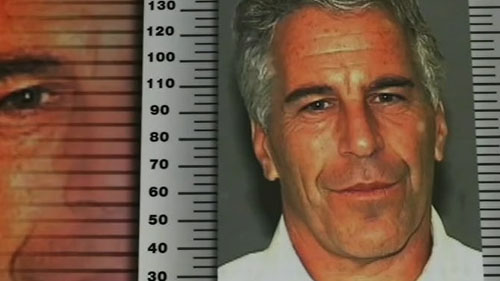 " />
" />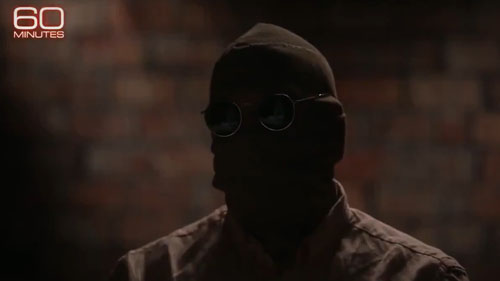 " />
" /> " />
" />




